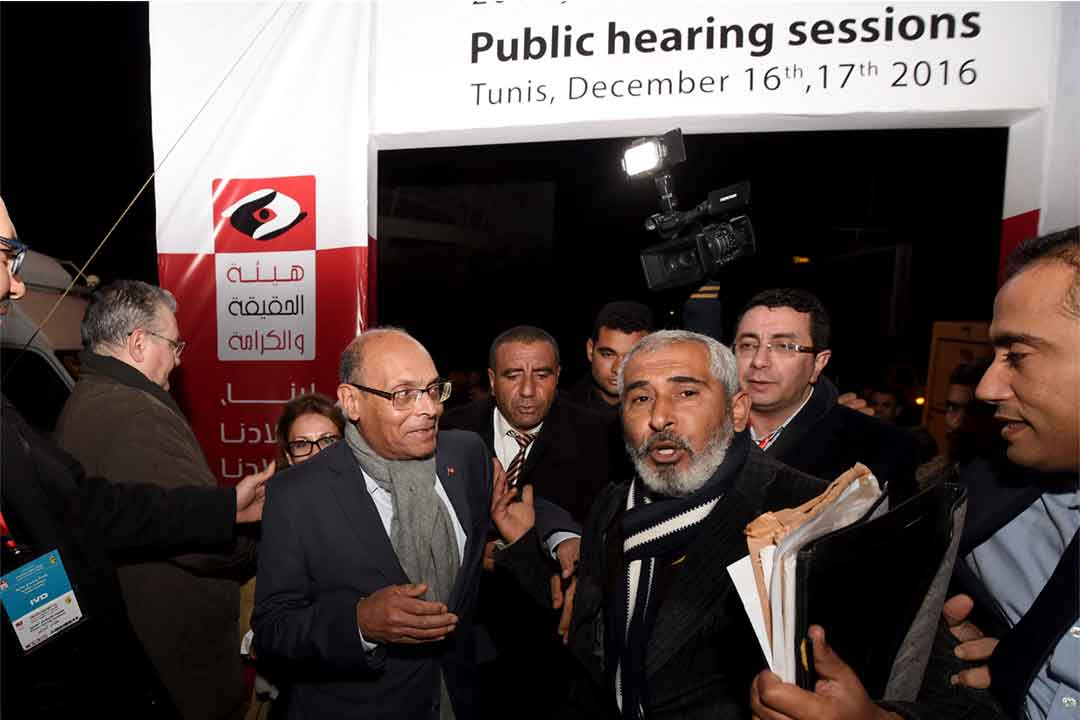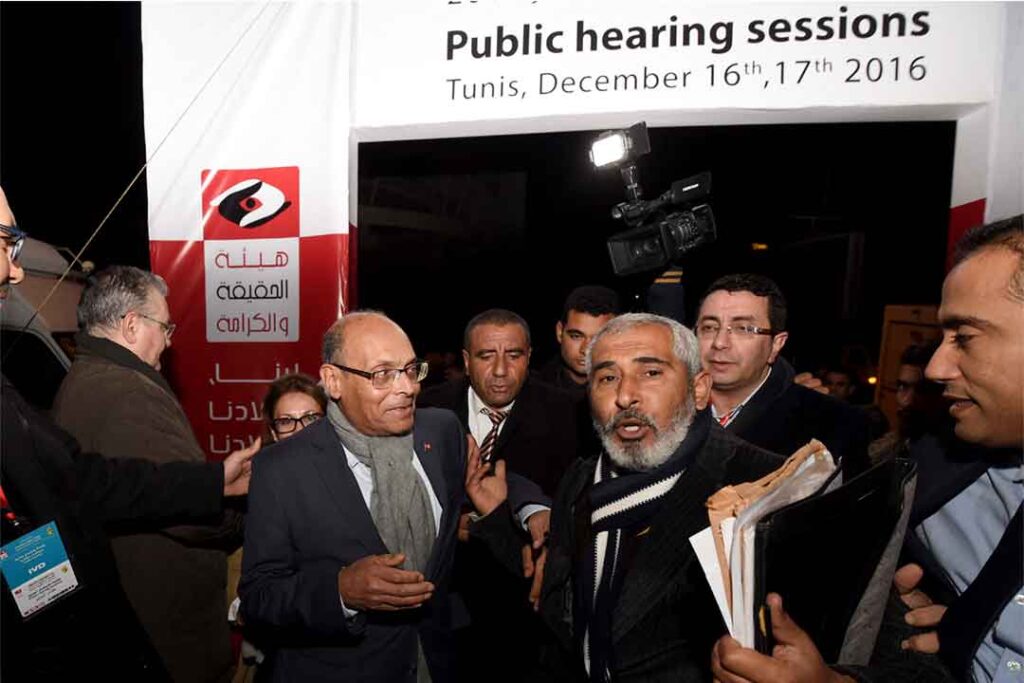Tunisia: tussle over constitution and new electoral law
by Farida Ayari
The path from dictatorship to democracy is riddled with roadblocks. Take Tunisia, the genesis of the 2011 Arab Spring uprisings. A mass rebellion that began with a fruit vendor’s self-immolation led to the departure of Zine el-Abidine Ben Ali, the North African country’s dictator since 1987. But how do citizens transform a political upheaval into a stable, democratic and accountable government?
It has been a bumpy transition, as Tunisia and its neighbours have shown. After secular-minded Ben Ali fled into exile on 14 January, 2011, a special commission tasked with producing electoral law and organising elections was set up. Comprised of 155 legal experts, representatives of political parties and civil society, it worked with the transitional government. Nine months later, their efforts gave birth to Tunisia’s first-ever democratic elections, held on 23 October, 2011. The country’s newly-engaged citizens voted in a temporary National Constituent Assembly made up mostly of political neophytes without any experience in government or law. A ruling coalition composed of the Islamist party Nahda and two secular parties dominates this 217-seat temporary parliament. This is where Tunisia’s latest troubles began.
The assembly’s main task is to draw up a new constitution that will eventually lead to elections for permanent offices. So far, members have written three drafts, the latest of which should be endorsed by a two-thirds majority vote, or via a referendum (if the assembly is unable to reach the two-thirds majority). Though Nahda, the dominant party in the ruling coalition, has promised to keep sharia law out of the constitution, secularists fear that if the party wins by a larger margin in the next elections, Islamic law could creep in.
This is where Tunisian politics become even trickier to understand. While the assembly is fighting over the constitution, it is also wrangling over two other items: a new law that establishes a new electoral commission and draft legislation that will determine how the full-term president and parliament will be elected. The main question on everyone’s lips is: will Tunisia’s next elections be free and fair? At this pace, no one can safely predict when they will take place, let alone whether they will be democratic.
In December 2012 the assembly passed a law creating the new electoral commission, called the Independent High Authority for Elections (ISIE) – a temporary body with the same name had organised the October 2011 elections. The assembly passed the law easily because the main opposition coalition boycotted the vote, and preferred to protest against the Revolution Protection League (LPR) for allegedly attacking the headquarters of Tunisia’s main labour union. The LPR is widely regarded as Nahda’s militia.
Monia Abed, former head of the first ISIE’s legal department, is very critical of the law that created the new electoral commission because it gives the executive branch undue political influence, compromising the commission’s independence.
The administration — including the interior and other ministries, the police, the army and regional governors appointed by the ruling party coalition — can refuse cooperation with the electoral body. For instance, the interior ministry could refuse to open identity registers to remove dead citizens from the voter registration lists. Or the police could refuse to protect the polling stations, usually located in schools.

The new law allows the ISIE to turn to the administrative court for redress if the executive blocks the election in any way, but this is an unwieldy process that can take several weeks.
“This is a blatant power grab by Nahda,” says Ghazi Ghraïri, secretary-general of the International Academy of Constitutional Law, an NGO based in Tunisia. “The ruling party is running scared that they will be voted out in the next election and are thus not willing to ensure free and fair elections.”
People are disappointed with Nahda’s management of the country. Critics accuse the party of giving more than 1,500 jobs to its cronies and other loyal supporters. Although it is still Tunisia’s most popular party, its rating dropped from 25% in May 2012 to 19.5% in January 2013, according to an opinion poll conducted by Tunis- based Emrhod Consulting, a market and social research firm.
Economic indicators have worsened: unemployment has climbed from 13% in 2010 to 17% in 2012, the latest figures available from the National Institute of Statistics (NIS). Inflation is at nearly 6% and the central bank’s hard currency reserves cover only three months of imports. Across the country, standards of living are dire, with 2.5 million people out of a population of 10.5 million living below a poverty line of $2 a day, according to the NIS.
In addition to undue executive branch influence, the law has reduced the number of regional ISIE offices to four. In comparison, the first ISIE had offices in all of Tunisia’s 24 regions during the 2011 election. This compromises the monitoring of elections and increases the possibility of tampering.
“Will Nahda have the means, maturity and openness to allow the required neutrality for free and fair elections?” Ghraïri asks.
The new electoral commission’s two-headed structure is also undermining its independence. The first line of command is a nine-member council. Each member must win a two-thirds vote in the Nahda-dominated assembly. Since March the assembly’s selection committee has been sifting through the 1,000 people who have applied for the six-year posting on the electoral commission. The prime minister, also a Nahda member, will nominate one of the council’s members as the electoral commission’s president. This candidate will need to be approved by the constituent assembly.
The second head of the new ISIE is the executive director, appointed by the nine-member council, who will be the head of the commission’s secretariat and in charge of administration, finance and technical issues. The relationship between the council and the secretariat is not clearly defined.
While the assembly is wrangling over the electoral commission’s appointments and structure, the assembly’s committee charged with writing a new constitution presented its third draft on 22 April and observers are predicting that the assembly will adopt the new rulebook in July or August.
But strangely enough, the constitution will not define an electoral system. A draft electoral law, also the subject of much heated debate, will outline the election structures to pick a new full-term president and parliament. So far, Nahda and the opposition, a motley collection of anti-fundamentalists, have agreed to compromise on a hybrid system.
A general election will be held to elect the president and parliament. The majority party in parliament will then choose the prime minister, but the general elections for president and parliament will use different systems. The draft legislation may include a provision calling for a two-round presidential election if none of the candidates can win an absolute majority outright, according to Ghraïri and other observers.
Once this has been agreed to, the next task of the constituent assembly will be to agree on the parliamentary elections. For parliament, Nahda was initially lobbying for a simple majority vote in which the victor is the candidate who wins the most votes even if it is not an absolute majority. Under this system, also known as first past the post, Nahda could win the majority of constituencies, even if only by a small margin. Jawhar Ben Mbarek, a constitutional law and elections expert, said this system would return the ruling party to power with about 62% of the vote.
After long and harsh negotiations between the main political forces of the country, the ruling party agreed on 25 April that the draft electoral law will stipulate a system of proportional representation for the parliamentary elections. If Nahda does not change tack, the constituent assembly will incorporate this provision into the electoral law.
Proportional representation was used to allocate the seats for the constituent assembly after Tunisia’s October 2011 elections. Many African countries, including South Africa, use proportional representation to minimise dominance by larger parties and to ensure that small parties can gain access to the legislature.
Tunisia, like other emerging democracies, is discovering the difficulty of writing a new rulebook and establishing a new system of government. Wrangling over the constitution and the electoral law will continue for many more months, as will the process of choosing members for the new electoral commission
Once the electoral law and constitution are adopted, the next hurdle will be registering Tunisia’s voters. Up to half of Tunisia’s eligible voters are unregistered, said the first ISIE in its final report published in February 2012. With a voter turnout of roughly 50% in the 2011 election, only one quarter of eligible Tunisians cast their ballots. All this leads observers to remain sceptical that elections will take place in the last quarter of 2013, as the government and the assembly’s president suggested recently. At the earliest, the next elections are more likely to take place in 2014.



